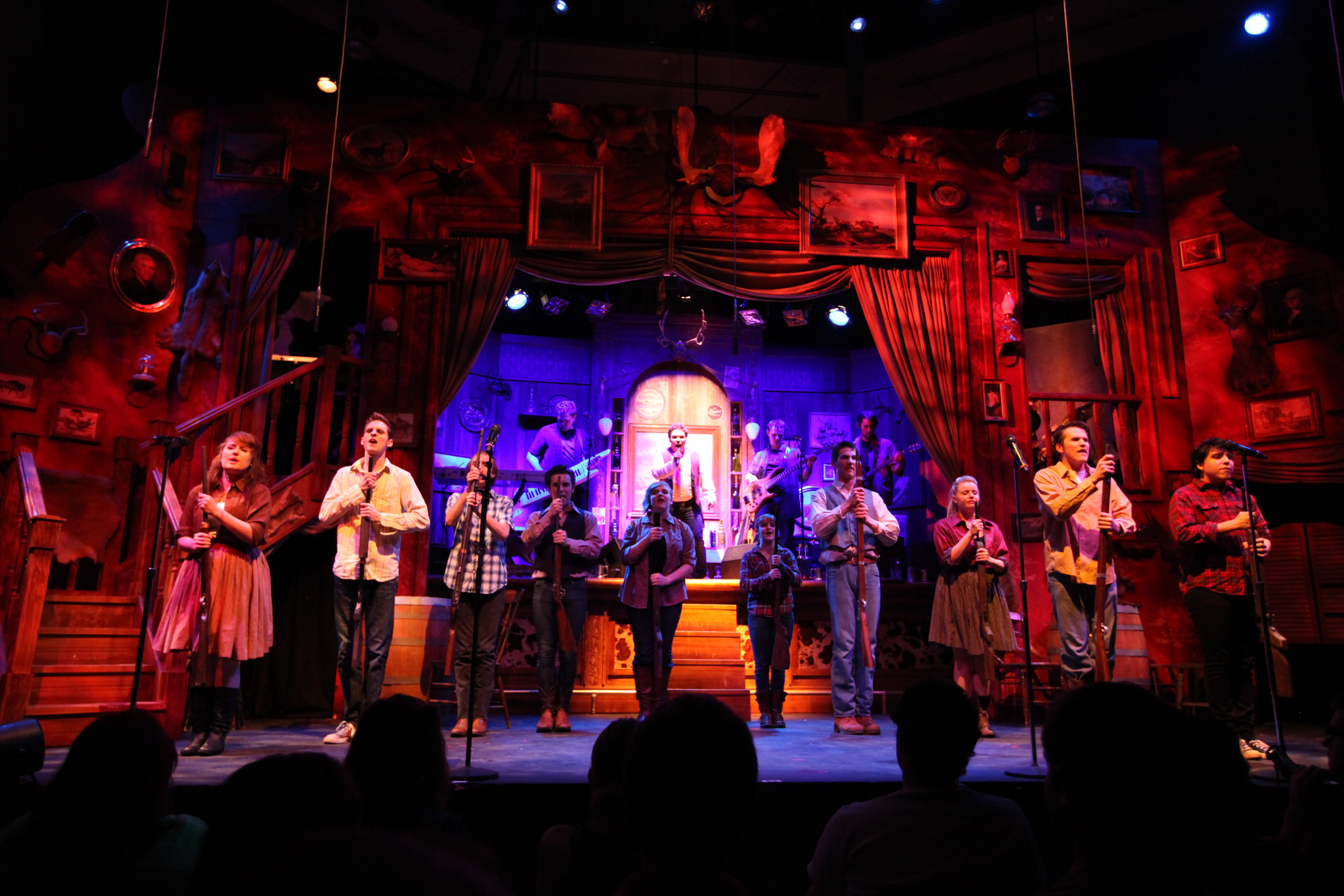Why Leaving Theater For Geekdom Wasn’t Much of a Change
Character acting, improv and ridiculing outsiders? Check, check and check.
By Shiloh McKinnon, Reed College
I’ve always been intimidated by improv.
I don’t know why—I really love theater, both acting and watching it—but getting up on a stage in front of all my peers and trying to be clever and funny without any time to think? One of the reasons I’m a writer is because you have time to think about what you want to say before you say it. With improv, you just have to go with the first thing that comes to mind. It’s terrifying. I seriously respect anyone who can do it, but I’m not one of those people.
At least I didn’t think I was. When I went to college, I decided not to get into theater. I made that choice for a variety of reasons, but chief among them was fear and lack of time.
Luckily for me, I was living in the sci-fi/fantasy theme dorm, or the “nerd dorm” as we called it.
The nerd dorm, it turned out, had a lot of similarities to my high school theater. It provided community, it gave me a place to grow as an artist, and, of course, it required me to do improv.
Improv
The first rule of improvisation is to say “yes, and.” That means that you’re not only expected to agree with whatever crazy scenario your scene partner sets up with you, but you should be building on it too. The ground may be made of jello and the only way to get walk around is with a single snowshoe each, but just agreeing that that’s happening doesn’t create any action. As an improviser, you have to be the one to say, “yes, we only have one snowshoe each AND, this is the perfect time for us to exercise our three legged racing skills.” It keeps the story moving.
It turns out roleplaying, a staple of nerdom, requires pretty much the same level of commitment to tomfoolery. We play a lot of tabletop rpgs at my dorm, but for the sake of simplicity I’ll talk about one more people have heard of, Dungeons & Dragons.
In Dungeons & Dragons, every player comes up with a character, stats them out, then looks to the Dungeon Master to set up the plot and tell them what the hell is going on. Usually you start in a tavern while you wait for the important NPC to give you your quest. And while you’re waiting, you start talking to your party—in character, of course. You can probably guess where I’m going with this. Talking in character is basically acting, and acting without a script is improv. And hell, even in the dungeon you have to make character based decisions.
I once talked to an alum who had lived in the nerd dorm and majored in theater about Dungeons & Dragons. I mentioned that I was having a lot of trouble getting into roleplaying because it was so overwhelming. I had to be clever and smart and pretend to know what I was doing, even though I’d only ever seen D&D on comedy shows like “Community” before.
To put it simply, I was terrified, and I’d often freeze up when the DM turned to me and asked “So what does your character do?”
It was just like theater all over again.
Eventually though, I started get the hang of it. My party was asking for me to use skills I was familiar with, if not necessarily good at after all. “I jump onto the giant worm’s back and plunge my sword into it, then I use my grappling hook to anchor myself and the sword to the wall.”
I ended up cutting the giant worm in half. It was the same feeling as receiving an audience’s applause after a skit.
Gatekeeping
But, as with every community, there are the bad things too. I was just surprised to find out that theater (or at least musical theater) has the same kind of cons as nerddom. It turns out that they’ve both got some pretty ridiculous forms of gatekeeping.
Geek guys are well known for trying to keep “fake geek girls” out of the community by quizzing them on uninteresting villains from specific issues of comics, but did you know that theater people do that too? At least according my experience in high school musical theater, there are “real theater people” and “people who only know the popular stuff.”
Maybe musical theater people are just hipsters?
Regardless, these gatekeepers even had a name, one they embraced, for the most part. They were called “Sondheim snobs” after the great lyricist and composer, Steven Sondheim.
A Sondheim snob’s favorite question was “What’s your favorite musical?” and just like the self-appointed gatekeepers of comics, they know that there’s a right answer and a wrong answer. “West Side Story,” “Sunday in the Park with George,” and “Carousel” are all acceptable answers.
“RENT,” “Spring Awakening” or “Wicked” though? Not so much. And god help you if you say you like Andrew Lloyd Webber.
According to a Sondheim snob, liking “Cats” or “Jesus Christ Superstar” might as well be a crime equivalent to yelling “MACBETH” in a crowded theater.
Community
Once you get past the gatekeepers (which I did by getting really into Batman and deciding my favorite musical was an off-broadway production no one ever heard of before last year), you’ve found yourself in one of the tightest communities you can imagine. Whether it’s sleeping in a huge pile on the same couch, desperately running lines backstage while you wait for your cue, staying up until 3 in the morning talking about loopholes in Harry Potter’s magic system, or trading interpretations of famous and vacuous plays, they both provide an undeniable sense of community.
I was afraid that I had lost something by choosing a social life in my dorm rather than in a theater my first year of college. Now that I look back two years later, I realize I just traded one incredibly close community for another. We even have impromptu bursts of “RENT” and “Wicked” in the nerd dorm sometimes. It turns out that I’m not the only one there that came from a theater background.











[…] the first place. With internet culture’s tightening grip on the mainstream, the new genre of “geek culture” found a place in alternative circles and like any reasonable franchise, Hot Topic […]